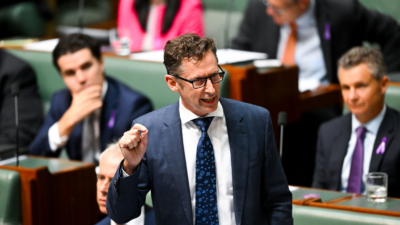-
Sort By
-
Newest
-
Newest
-
Oldest
The Your Future, Your Super performance test will have a tough time weeding out underperforming trustee-directed products when they’re already closed, according to Chant West, while many of those housed on platforms could fail because of their unique fee structures.
Competition in super is heating up but it’s not yet come to the boil. Mergers, member retention and retirement are all shaping up as key battlegrounds for funds.
Genuine uncorrelated alpha is the holy grail of investments, writes Michael Block, but managers and strategies that can actually generate it are hard to find. So what’s a poor boy to do?
Super funds’ relatively low allocations to fixed income will rise with yields and as members move further into the retirement phase, according to a new report from the government’s debt agency.
There will likely be more changes to the controversial Your Future Your Super regulations following the “initial response”. Meanwhile, the government is pressing on with super fund involvement in nation-building projects.
Mercer Super wants to break down the long-held perception that only the industry funds can offer strong performance with competitive fees. Its newfound scale and global footprint are key to the “disruption opportunity”.
Funds that have failed the Your Future Your Super performance test need to improve their communications on underperformance and product closure, according to ASIC.
Big and small funds alike can do well for their members, and what’s more important than size is how they use it. But the risks of having a highly concentrated industry have been “underplayed”, according to ANU academic Geoff Warren.
The changes to the Your Future Your Super performance test are an improvement, according to WTW. But the application of the test to trustee-directed products is probably more of a negative than a positive, and some benchmarks remain inflexible.
As Australian superannuation assets approach A$4 trillion, politicians on both sides of the divide will be tempted to dip into this massive nest egg to meet their fiscal needs, writes Rob Prugue.














